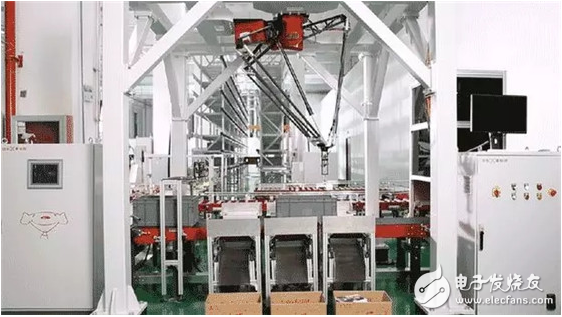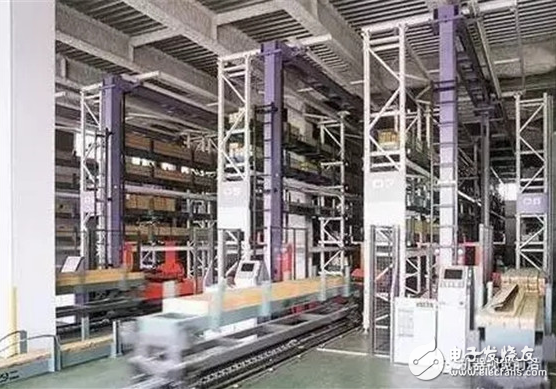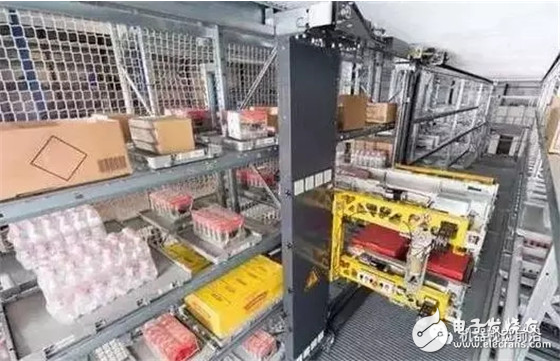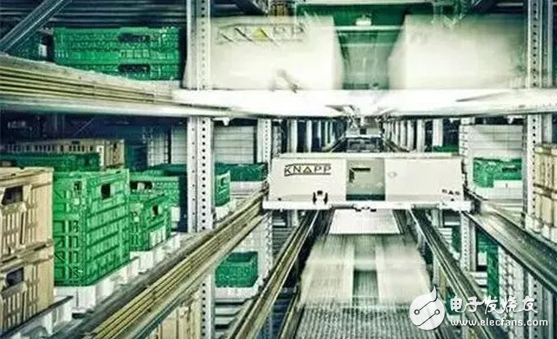Today, with the rapid development of e-commerce, there are currently 100 million parcels per day in China, and the daily parcel will reach 1 billion in the next 10 years. For the logistics industry, which is sensitive to labor costs, machine vision has the advantages of high automation, high efficiency, high precision and strong environmental adaptability, opening a “new horizon†for the high-speed development of logistics sorting system. The logistics industry is rapidly evolving from manual sorting to intelligent and automated. Every procedure completed by the logistics automation robot brings about a reduction in labor costs and an increase in work efficiency. At present, in the warehouse, robots can mainly replace labor in sorting, handling, stacking and so on. Different types of sorting robots, with their shape, have an image recognition system. With magnetic strip guiding, laser guidance, UHF RFID guidance and machine vision recognition technology, the sorting robot can automatically drive and "see" different items. After the shape, the robot can automatically transport the items on the tray to the specified location. After receiving the shipping instructions, the automatic sorting machine quickly sorts the goods according to the variety, material, weight and location of the goods through visual scanning technology, and then delivers the goods to the designated shelves or shipping stations. At the same time, the robot can also deliver the goods on the shelves to different platforms for transportation in the shortest time. This can greatly shorten the express delivery cycle and improve the service level. Intelligent technology with advantages such as automatic efficiency is becoming a hot spot for express delivery companies, and there is a technology that enables robots to flex their muscles in the express delivery industry. This is “visual recognitionâ€. Automated color code scanning Using automated color code technology, the worker only needs to scan the barcode on the product and input the relevant information into the sorting system. The sorting robot will receive an instruction to determine which sorting area the product will enter. The core of this technology lies in the control device of the sorting system. It classifies the information according to the material and weight of the goods provided by the merchant or the owner, and issues the sorting request. The robot will deliver the goods to each classified area. Express delivery companies use this kind of visual recognition-based shape recognition technology to continuously improve work efficiency, not only save space, but also increase the speed of goods outbound. Automated quantity detection technology As an invisible shopping method, online shopping is very important to timely replenish the supply and meet the needs of customers. The sorting robot can not only automatically classify goods, but also detect data in the warehouse. In order to understand the inventory in a timely manner, in response to sudden out-of-sale incidents, express delivery companies can use the automatic sorting system to understand the quantity of goods delivered, goods, and customer returns, so as to provide accurate data for understanding market conditions, and also enable express companies and Suppliers form a more scientific supply plan to improve their performance. Automated shape recognition technology The most obvious feature for different courier items is the "shape." Therefore, shape recognition technology based on visual recognition has played a huge role in the sorting of express delivery companies. This technology for shape recognition continues to increase productivity. The sorting robot can quickly and accurately classify the shape of the product, which not only saves space, but also increases the speed at which the goods are delivered outward. Conecting Terminals Without Screws Conecting Terminals Without Screws,Cold Pressing Terminals,Low Pressure Cold Shrinkage Terminal,Cold Shrinkage Cable Terminals Taixing Longyi Terminals Co.,Ltd. , https://www.longyicopperterminals.com


